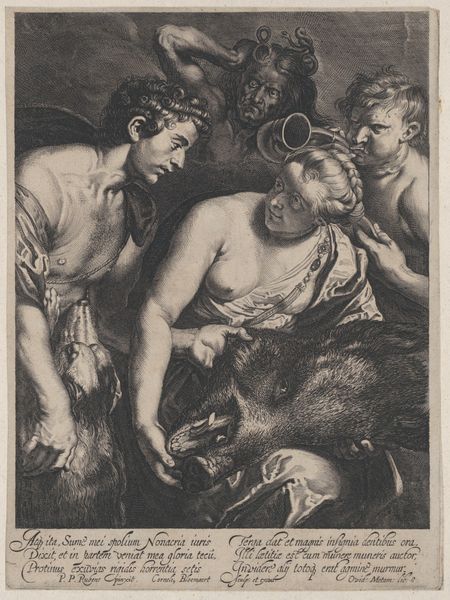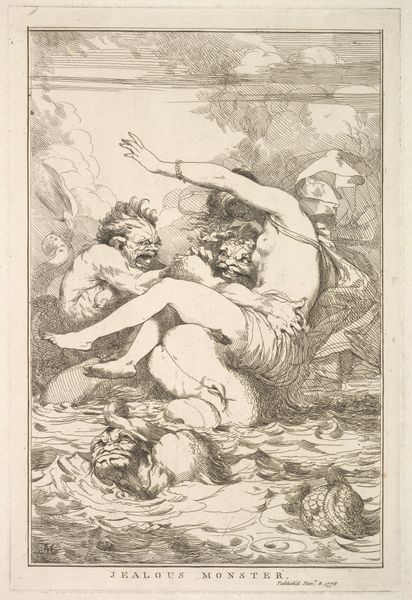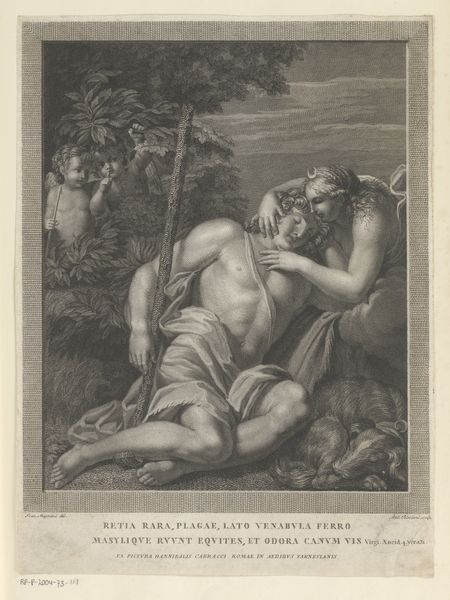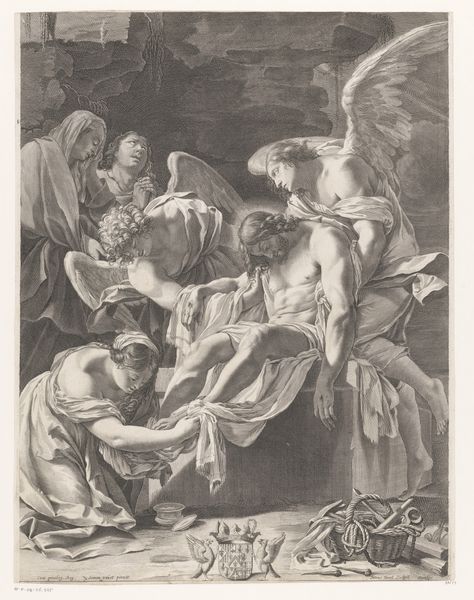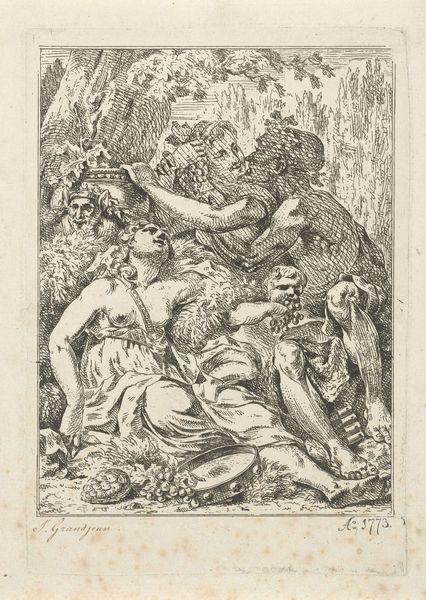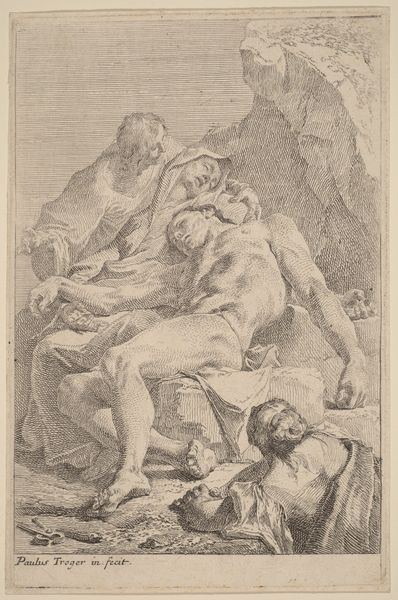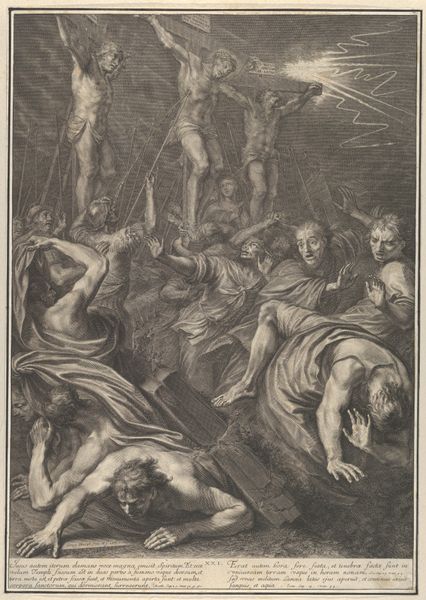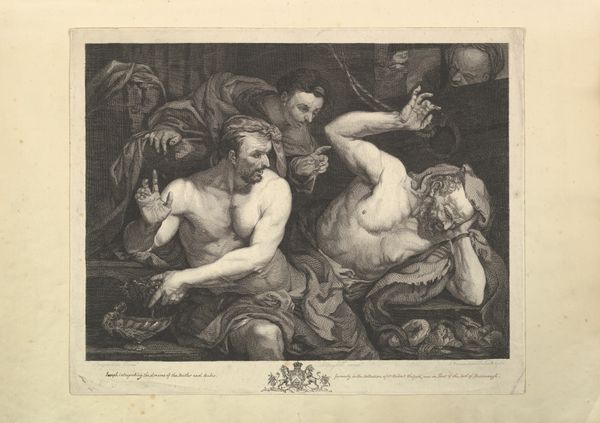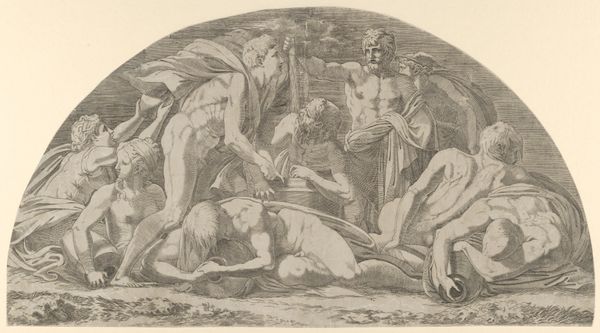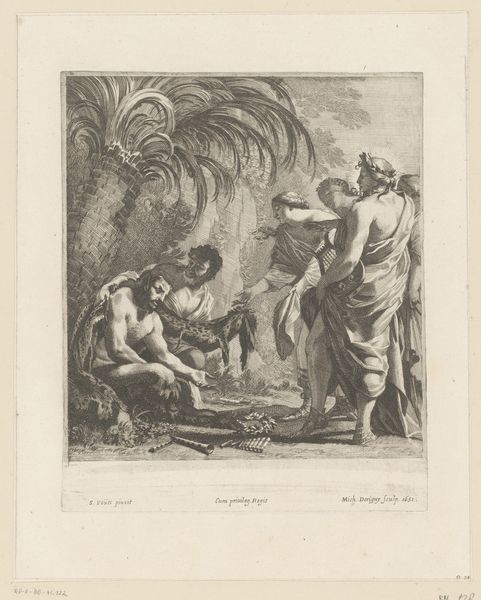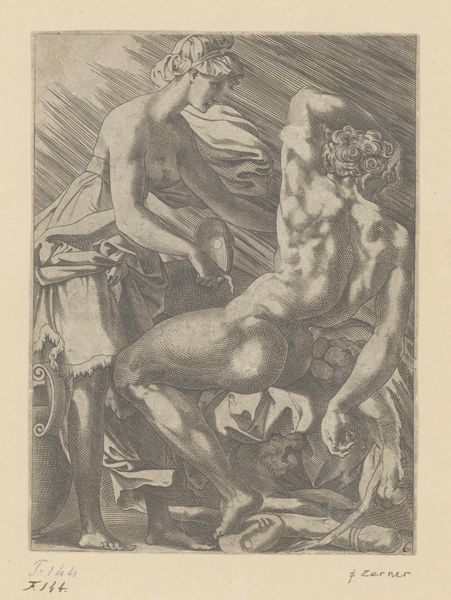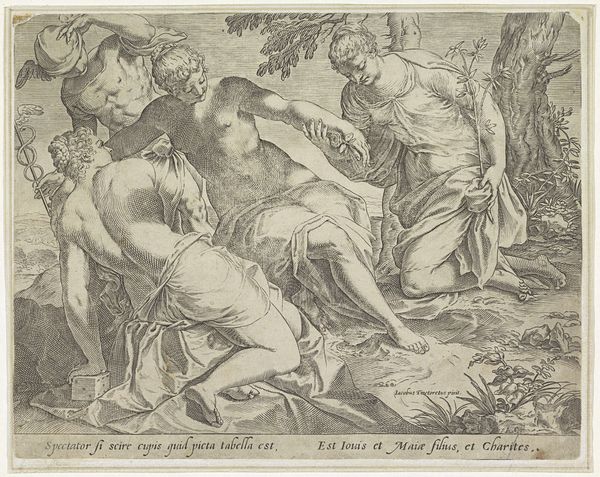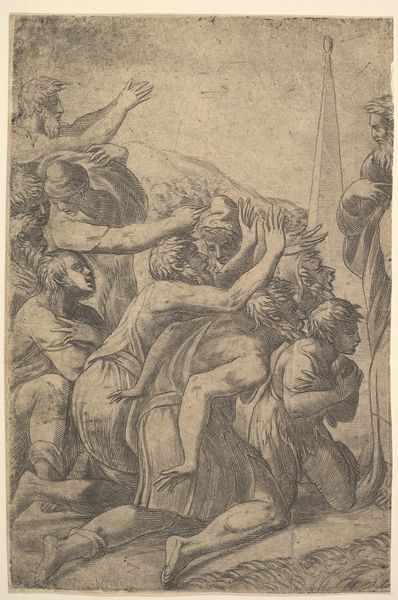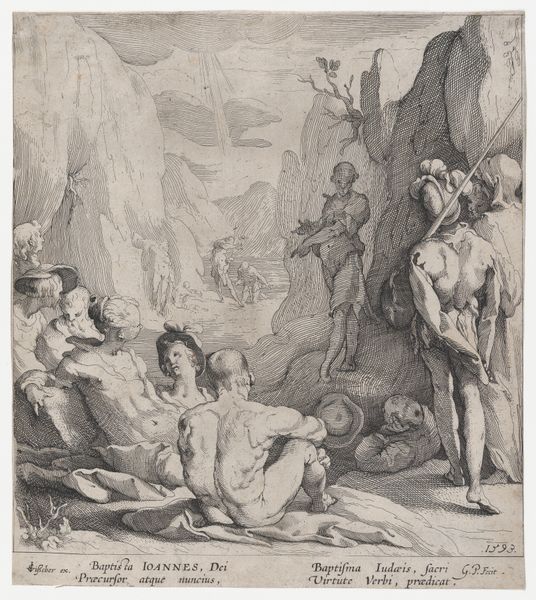
engraving
#
baroque
#
old engraving style
#
figuration
#
history-painting
#
engraving
Dimensions: height 309 mm, width 224 mm
Copyright: Rijks Museum: Open Domain
Curator: Before us we have an engraving from around 1738, titled "Meleager and Atalanta." Editor: The first thing that strikes me is the pallid tension. Everyone seems frozen, burdened. Is that a dead boar dominating the scene? It feels strangely somber. Curator: Indeed. The artist has captured a pivotal scene from Greek mythology, the Calydonian Boar Hunt. Notice how Atalanta, a powerful huntress, and Meleager, a hero, are central. Examining their positions, we have the intersectional issues of gender and power at play within the traditional heroic narrative. Atalanta, often marginalized, is here given prominent visual weight. Editor: I am captivated by the boar itself. Look at the texture, the deep shadows creating a sense of weight and brutality. Boars often symbolized untamed nature, primal urges. Its presence could indicate underlying fears regarding the disruption of the traditional social structure, as reflected in the myth. Curator: Exactly. And who is to say whether this represents civilization's victory or violence, if we read the symbols through contemporary lenses? Given Atalanta's unusual role as huntress, the fallen boar disrupts norms linked to both gender and civilization itself. We can draw parallels with contemporary societal struggles and their roots. Editor: It is as if this artwork uses its imagery to evoke cultural memory regarding not only individual morality, but larger notions of society and culture. The hornblower behind them perhaps references those historical ideals themselves. Are they threatened by Atalanta, I wonder? Curator: That is a reading of this work with profound relevance for audiences today. Thanks for exploring these cultural connotations, and I thank you for taking the time with me. Editor: Indeed. An enduring reminder of the importance of history in understanding ourselves.
Comments
No comments
Be the first to comment and join the conversation on the ultimate creative platform.
